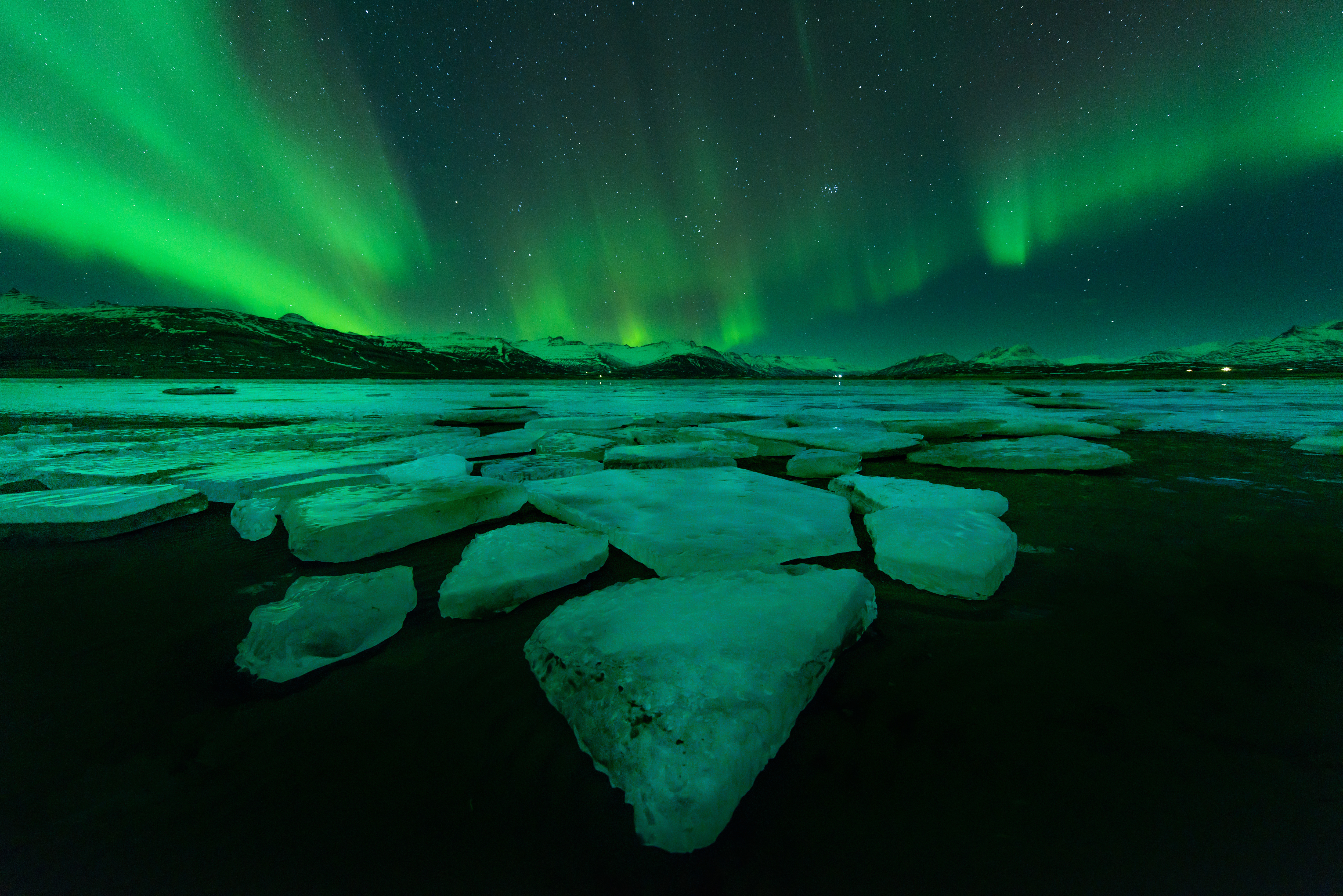Sermon in Lent 1B- Comfort in the Wilderness.
Grace and peace be unto you from God our Father, and our Lord and Savior Jesus Christ, Amen.
Today on the first day of Lent we hear again about Jesus’ baptism. Now if you were to look at baptisms we do here at Trinity, you might expect Jesus to celebrate afterward. We light special candles, give you presents, and there’s even a tiny parade where we introduce you to all the smiling faces of the community that promises to nurture you in faith. We warn you about the choir. We welcome you into the Lord’s family. We take pictures. We may even clap and cheer!
But in our Gospel story today, Jesus does not go home and take a nap after his baptism,
nor does he go to celebrate afterward by having lunch at the Red Plate Diner with his family. There’s no feast, no merry-making, no laying on your back and staring wide-eyed at the mobile suspended above your crib. Instead, the heavens are torn asunder, the spirit dive-bombs Jesus in the chest like a dove, and Jesus is immediately driven out by the spirit into the wilderness where he spends forty days with the wild bests and the temptation of Satan.
Now for the writer of the Gospel of Mark, this wilderness is a desolate place. It is dry, dusty, and as full of death as the ash we wore on our foreheads last Wednesday night. And if the desolate landscape were not enough, the devil and wild beasts are there, ready to devour us and rend our flesh. The point is, it is a hostile place. It is full of death, brokenness, and waste.
I believe this is one of the most comforting passages in all of scripture.
Say: “Vicar, now I know you’re talking nonsense. Didn’t you hear the bit about nasty beasts and that Satan was there in the wilderness tempting people? Who would want to be driven out into that? Jesus is tempted and tortured for forty days in the barren wilderness, and you’re saying it’s comforting?”I’ll say it again, because I’m not even sure if I believed it the first time, but when I read this Gospel, I’m compelled to say this is one of the most comforting passages in all of scripture: that Christ is driven out into the wilderness.
Where do you find comfort in this passage?” The temptation that we have when we hear this story is to focus on Jesus’ temptations. We hear that he went out into the awful things, and we can only think of how awful that must be. No one wants to be tempted by the devil. But the temptation and wild beasts are not the most important part of the story to Mark. The Gospel writer simply mentions that these things happen and then moves on. Because what matters, is that God has come near in Christ. Or more simply: what matters for Mark is WHO it is that is driven out into that wilderness: it is Christ, the one who proclaims the nearness of God.
You see this is the beginning of the Good news of the story of the one Christ, the one prophesied about in Isaiah:the one whose blessed feet bring the Good news of God’s love for us! This is the Great Physician, the person with whom God is well pleased, the same person who two short verses later will proclaim to us the dawn of a new era: the kingdom of God has come near!
God is here! God is here! Repent, turn your head and see this shiny new thing, and believe in the good news! This is Christ, the one who will redeem us, rescue us, and make us whole where we are most broken. It is precisely this Christ, that goes into the wilderness.
No, he doesn’t just go, that’s the wrong word, it is not as if he said “hold on a minute, let me check my Google Calendar, yeah, this might be a good time to go be tempted by the devil and some wild beasts. Oh, and how about lunch on Thursday?” But rather, he his driven. Cast out even, by the holy spirit. God’s very essence compels him without a choice into the wilderness. This God of Love, healing, and mercy is cast out, driven out, torn asunder, and plummeted straight into the place where such a one is needed the most: the wilderness. And that, is why this is one of the most comforting passages in all of scripture. Because it shows a God driven to be with us in our hour of need.
Because now WE are in that very wilderness. This is not just some random desolate forgotten place out in the wastes of the Sahara desert that Christ is going. This is OUR wilderness that God is driven into. Even if today you are on top of the world and having the best snow-filled day of the week. It does not take long for us to come up with ways that we are broken, and lifeless, plagued by death, worry, and temptations of the devil. It does not take long for the nap we have after our baptisms to turn into crying and throwing fits.
What does your wilderness look like? You have one. Maybe your wilderness is the self-imposed misery you have because you just gave up Chocolate for Lent. And someone just brought home a box of those thin mint girl scout cookies, and they look oh soo good. Maybe you’re worried you haven’t done enough yet this lent, you haven’t prayed enough, been enough. You just can’t seem to get to God. Maybe your wilderness is a terrible cancer, and a clock that ticks every day closer to your being weaker and less able to stand. Maybe your wilderness is mountains of homework. Maybe it’s getting up in the morning. Maybe it is mourning the loss of someone you held dear. Maybe it is being overworked, over-scheduled, and just plain worn out.
You name it, we live in a world of wildernesses. Just as much as we have transfiguration mountain top moments like Pastor Jen talked about last week: we have wilderness abounding. And it is into that world, that our God of love is driven, compelled, torn asunder and plummeted. It is precisely in those places that we feel the most broken, that God promises, no, is driven and compelled to show up.
We are tempted again to think that the wilderness is the place where God must have withdrawn from us. Where is all the joy and love that our God has promised? There are poor people who are right now dying of frostbite because they do not have a warm place to stay. We are starving. We are dying. We are scared. We are stressed. We are alone, and we miss the people that we love. We just gave up chocolate. How could this be a world where the Kingdom of God is so near? How can we repent and believe the good news in the face of so much tragedy? How can you say that God is working in such awful things?
For any number of reasons, we cannot believe that God is near, even when Mark shows us exactly the opposite. Look, how God is even there already in the wilderness, we tend to skip over the end of verse 13 where it says angels wait on Jesus during his time of greatest need! Look how Christ is right here, in the think of it! Christ takes the wilderness on, and into God’s very own being. Our God is a God that is here among us! This is a God that suffers with us when we suffer. That dies with us when we die. God is here. Driven, cast out, torn asunder, and loving. Right beside us, in our happiness and even and especially in our times of need.
Take comfort in that you are not in this alone, but the whole church is gathered here in the wilderness. We are all baptized together in Christ as a sign of this very thing: the unbelievable and foolish story that Mark leaves us with. The story that the Kingdom of God is HERE, driven to be closest in the midst of our wilderness.
This then, is the entire meaning of the season of Lent. If someone should ask you, “What do you believe about Lent? What is it all about?” You can tell them this: “Lent is about comfort. For it is the season where we hear most plainly that the God of Love is present, (HERE!) even and especially in the places where we feel God’s absence the most.” We hear of God who is driven out to tackle the wilderness then to hold us in God’s steadfast and loving hands. Where we cannot get to God, God gets driven down and broken with us. It is in Lent that we hear of this great comfort: God’s love and community, happening to us in the wilderness.

